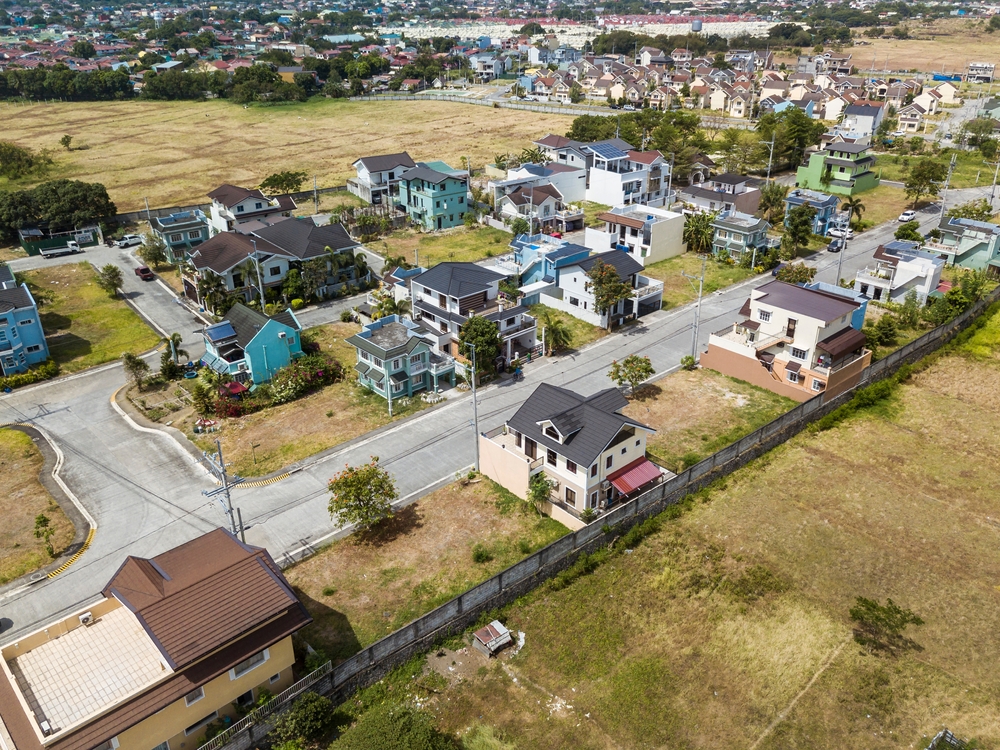Real Estate: Country Rental Fact Sheet
Welcome to the Philippines!
The Philippines is an attractive place for expats to live and work, offering a low cost of living, friendly people, and warm climate. Many retirees move to the country as a way of stretching their retirement funds. Known for its affordability, the Philippines offers a variety of property rentals from apartments and condominiums to single-family houses, many in gated communities. There is a wide range of rental rates, which are dependent mostly on size and location. Highest in the city centers of the country’s large metropolises, rates can be extremely cheap for bare minimum accommodations just outside city centers or on the higher end for a luxury unit with amenities in a central location. Non-Filipinos are prohibited from owning land in the country; therefore, all landlords are natives. As the country’s second language, English is commonly spoken, lowering communication barriers for many foreign residents. However, smiles are universal and plentiful as the Filipino people have a reputation of being friendly and welcoming toward visitors. Prospective renters beginning their search will benefit from using a translator or multilingual real estate agent, as well as extensive English-language property listings and classifieds.
Types of Rental Properties
- Apartments and condominiums are the most widely available rental properties in the Philippines. Many are within high-rise complexes providing a kitchen and living room, along with bedrooms and possibly a small storage area. Some have balconies or access to rooftop gardens. Older buildings tend to offer larger accommodations, while newer developments are more likely to provide residents with amenities such as a swimming pool, fitness center, cinema, game room, or café. Many venues host open houses that allow potential renters to tour a unit and ask questions before making a commitment.
- Single-family houses are widely available as well and are generally clustered in gated communities called villages. These typically upscale neighborhoods are encompassed within a fence, with a code required to enter or a security guard posted at the entrance. Gated communities are popular with expatriates for the security they provide.
Expat Cities
The majority of expats in the Philippines live in the Manila metropolitan area, particularly in Makati City, which is home to many international corporations and is the heart of the country's diplomatic community. Bonifacio Global City in Taguig is also popular, as are Ceba, Baguio, and Subic Bay. Rental properties of interest to expatriates are found in the bustling business districts of its large cities. However, those wanting a quieter environment will want to look in outlying areas where rates are more affordable. In addition, the suburbs offer more single-family houses, which tend to provide more space and privacy.
How to Find a Rental
International real estate companies handling sales and rentals such as RE/MAX (www.remax.ph) and Sotheby’s (www.sothebysrealty.com/eng/rentals/phl) have English-speaking agents with offices in the Philippines specializing in listings for expats. Rental listings also are posted in local newspapers and on classified ad websites such as Carousell (www.carousell.ph), Craigslist (https://manila.craigslist.org), and Free Ads Time (https://all-provinces-of-philippines.freeadstime.org/classifieds/Rentals). Some of the most popular online portals for rental properties include:
|
|
Rental Rates and Fees
Below is a table of average monthly rental rates for apartments by size and location.
| In City Center | Average Monthly Rate | Range | Outside City Center | Average Monthly Rate | Range |
| 1-bedroom | ₱32,560 | ₱20,000–60,000 | 1-bedroom | ₱16,333 | ₱10,000–25,000 |
| 3-bedroom | ₱108,750 | ₱70,000–180,000 | 3-bedroom | ₱45,000 | ₱25,000–70,000 |
- Before renting, check to make sure that the residence’s dimensions are reported as “useable size” rather than “official size,” as the two figures can vary dramatically.
- Monthly rental fees are generally quoted as “all inclusive,” meaning that all applicable fees and any included utilities are already factored into the price. If the quoted rental amount is “exclusive,” additional fees and utilities may add to your monthly budget.
- Typically, a fee of one month’s rent is paid to the real estate agency for their services in securing a one-year lease.
Lease Terms
Restrictions
Properties can be rented by foreign nationals of all countries. Proof of residency and employment are generally required for lease periods of longer than six months.
Duration
The most common lease term in a Filipino tenancy agreement is 12 months; however, oftentimes a 24-month lease also is an option.
Deposits
A security deposit equal to three times the gross monthly rent (two months’ rent as deposit plus one month of rent in advance) is typically required. Interest is not paid on the deposit. Some higher-end condominiums may request rent is paid in advance for an entire year with post-dated payments submitted.
Pets
Pet-friendly rentals tend to be more common outside city centers where parks and leafy neighborhoods provide space for four-legged friends. High-end venues are more likely to have a no-pets policy; however, some landlords may be willing to negotiate on a case-by-case basis. Single-family houses with yards offer the best possibility of having pets such as a dog. In any case, an additional deposit or pet fee is usually required by the landlord.
Legal Issues
- Failure to pay rent for three months allows the landlord to evict a tenant. Eviction also may take place if a tenant subleases the unit without written consent of the landlord, the owner needs the property for personal use, or repairs are required, for which a three-month notice must be given.
- Tenants may withhold rent if a landlord refuses to make necessary repairs or fails to maintain an adequate and peaceful accommodation
Amenities
Furnished vs. Unfurnished
Rentals are generally unfurnished, which means they have only the essential appliances such as a hot water heater and refrigerator. Apartment buildings and condominiums typically have a shared laundry facility available. Most rentals do not come with heat or gas-powered appliances, instead electric stoves and convection ovens are commonly used for cooking. An air conditioner is a must and usually included.
Security
Living in such a densely populated city means security is a top concern, and everyone wants to feel safe in their home. Some apartment buildings and condos have coded or keyed entries while others are staffed by a concierge around the clock. Gated neighborhoods with guards on duty provide the highest level of security for single-family homes.
Parking
If parking is available at your rental property, spaces are typically allocated based on the size of the residence with a parking space allowed for every 75–100 square meters (246–328 square feet). Any parking fees are usually included in the monthly rent.
Utilities
Most rentals do not include utility service. Electricity, telephone landline, internet and bundled services, water and sewage, and waste and recycling must be secured independently by the renter.
Telephone Landline
Philippine Long Distance Telephone or PLDT (www.pldthome.com) and Globe Telecom (www.globe.com.ph) are the country’s largest telecommunications providers. Both companies also offer internet and mobile phone services. Many large apartment buildings and condominium complexes have existing contracts with telecommunications providers, which makes hooking up to telephone, internet, and television services simple and easy.
Internet and Bundled Services
Along with Philippine Long Distance Telephone or PLDT (www.pldthome.com) and Globe Telecom (www.globe.com.ph), other popular internet service providers include SKY Fiber (www.mysky.com.ph/skyfiber), Converge ICT Solutions (www.convergeict.com), and Globe (www.shop.globe.com.ph). Fixed-rate packages for bundling telephone landline, internet, television, and mobile phone service are available.
Electricity
In the Philippines, the main electricity supplier is Meralco (www.meralco.com.ph). You can activate service in person at the nearest Meralco Business Center where you will be required to show valid identification, a wiring permit, and copy of your lease agreement. Activation requires a deposit, the amount of which is based on historical meter readings for one of usage from your residence. Bills are typically paid monthly by mail or in person as a Meralco Business Center; however, prepaid services are available as well as automatic direct debit.
The standard electrical voltage is 220 volts AC, 60 hertz, using plug types A, B, and C. American devices, which are designed for 110- and 120-volt electricity, will require voltage converters or transformers. European devices, which operate at a higher voltage, will only require simple plug adapters.
Water and Sewage
Water and sewage services are provided at the municipal level and overseen by the Local Water Utilities Administration or LWUA (https://lwua.gov.ph). In Manila, Maynilad Water Services (www.mayniladwater.com.ph) is the provider in the west and Manila Water Company (www.manilawater.com/customer) services the east. Residents can most often arrange to pay their water and sewage bill online through the company’s website.
Gas
Gas is not generally used as a household fuel in the Philippines and as such is not commonly available in residences. Those who require bottled gas can find it at local stations.
Waste and Recycling
Solid waste collection and recycling services are provided by local companies. Many landlords provide tenants with outdoor composting areas and separate containers for waste disposal and recyclables such as plastics, paper, and metals. Usually, tenants are responsible for placing the bins curbside for collection on a weekly basis, with specific days dependent on location.
FAQs
Can I negotiate my lease?
The monthly rental of properties can usually be negotiated unless already specified by the landlord. The majority of negotiations will be regarding a fully “inclusive” monthly price that already factors in any included utilities or management fees. An “exclusive” price does not include these costs, which should be added to determine your total monthly budget. Be firm when negotiating and move one to the next listing if the price is too high as there is surely something to fit everyone’s budget and preferences.
In addition, when renting an unfurnished apartment or partially furnished apartment, the requirement for additional furniture, appliances, or fittings, can sometimes be negotiated.
Should I have renter’s insurance?
Renter’s insurance is advisable, and some Filipino landlords require it of tenants. Most insurance companies offer some form of renter’s insurance. Depending on the policy, renter’s insurance can cover everything from lost or stolen personal items to property damage due to kitchen fires, plumbing issues, inclement weather, and more. Rates are calculated based on the size of the rental property as well as the value of furnishings and personal effects.
Article written for World Trade Press by Brielle Burt.
Copyright © 1993—2025 World Trade Press. All rights reserved.

 Philippines
Philippines 

